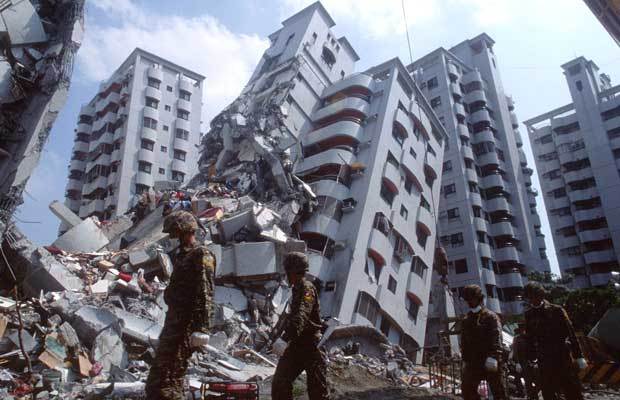Earthquake Safety Checklist
Earthquakes happen virtually anywhere which reminds us that this natural disaster is a fact of life we could reasonably expect to see at some point in our lives. There are over 15,000 earthquakes on average each year worldwide. Granted, most of these earthquakes are on the smaller side rating under a 4.0 but nevertheless, there seems to be no place that is completely safe from the potential of an earthquake happening.
In the US alone deaths from earthquakes seem to be relatively low, but it is the aftermath that you have to worry about. You may make it out of your home or office only to find that once the earthquake is over, you have no place to live and all your belongings are buried. We will never be able to stop earthquakes although there have been great strides made at predicting them, but as Preppers our job is to make sure we live through them and survive after an earthquake. The earthquake in Chile touched off landslides that blocked roads, knocked out power for thousands, damaged an airport and started fires that destroyed several businesses. Some homes made of adobe were destroyed in Arica (Chile), another city close to the quake’s offshore epicenter. Are you prepared to deal with the effects of an earthquake if it hit your home?
So with that in mind, I wanted to pull together this earthquake safety checklist which hopefully will point out any areas in your preps that you might need to work on. You can also find more information from FEMA’s Earthquake Safety Checklist downloadable as a PDF file and all the Earthquake information you can shake a stick at (no pun intended) on the USGS Earthquake hazard site.
How to prepare for an earthquake?
- Know where you are at all times and how to get out of the building. This is more important if you are in a strange place like a hotel in another city.
- Select a safe place in your home for everyone to wait out the earthquake if needed
- Practice earthquake drills with your family
- Keep flashlights and sturdy shoes available.
- Bolt gas appliances to walls (water heater, oven, dryers)
- Know how to shut off the gas in your house and have the proper tools on hand if you need to do this.
- Keep emergency supplies/bug out bags in a safe location.
- Have a plan for power outages before you are faced with one.
What should I do during an earthquake?
If you are indoors
- Move to your safe place as quickly as possible; make sure your head is protected from falling debris.
- Stay away from windows and glass.
- Stay indoors until the shaking stops.
- Use stairs instead of an elevator in case of structural damage or power outage.
If you are outside
- Find a clear spot away from any buildings, power lines, trees or streetlights.
- If you are in a vehicle (and notice the shaking in the first place) pull over to a clear spot and stop. Don’t pull under an overpass or anything that could fall and trap you.
- If any power lines are down stay away even if the power appears off. Especially if there are power lines on vehicles, do not touch the vehicle.
- If you are in the mountains or near cliffs watch out for rock-slides or unstable features. Landslides and avalanches can be triggered by earthquakes.
What do I do after an earthquake?
- The initial shock-waves may only be the first of many that could still cause injuries. Expect aftershocks and use the time between instances to get to a safer place. If you are anywhere near the coast Tsunamis could occur so immediately seek higher ground.
- Check your family or group for injuries and move injured people to a safe location.
- Make sure you are wearing appropriate clothing, footwear and protection for your hands if there is a lot of debris.
- Make sure any fires are extinguished as quickly as possible.
- Check radios for extent of the damage and any emergency notifications.
- You should already have stored water, but if not and the water is still working, it may make sense to fill your bathtubs (providing your house is safe) to use the water for hygiene if the water is cut off.
- Stay away from power lines and out of damaged buildings as much as possible.
- Contact your loved ones if possible and let them know you are OK.
- Go to your prearranged rally point if you are able to do this.
Earthquakes happen virtually anywhere which reminds us that this natural disaster is a fact of life we could reasonably expect to see at some point in our lives. There are

